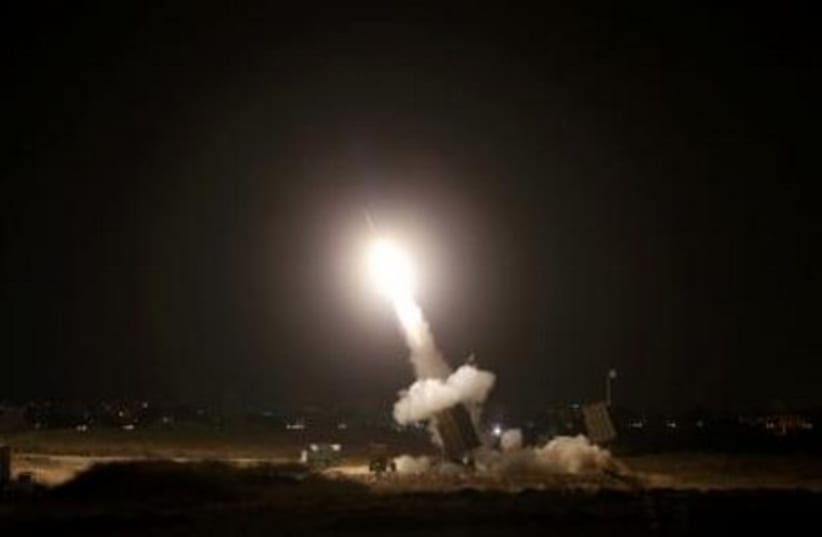Analysis: Does Iron Dome need to intercept rockets fired at Bethlehem or Hebron?
After all, why would Israel need to defend Hamas from its own misfires and if West Bank areas can be tossed in with Hamas because of the national unity deal, one might think the same logic could apply.
